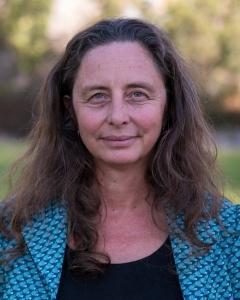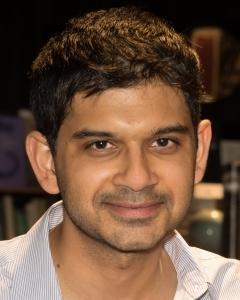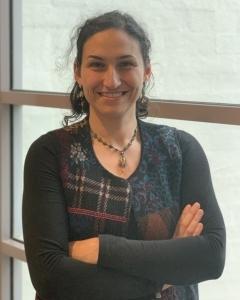AuSI International Fellowships
Dr Anton Moiseienko
Position: AuSI International Visiting Fellow
School and/or Centres: Australian Studies Institute
Australian Studies Centre: Clark Center for Australian & New Zealand Studies (University of Texas at Austin)
Email: Anton.Moiseienko@anu.edu.au
Visit date: 31 Oct 2023 - 14 Dec 2023
Website: https://law.anu.edu.au/people/anton-moiseienko
Fellowship project: Dr Moiseienko's project is a comparative study of US, UK and Australian approaches to using targeted sanctions, such as asset freezes and travel bans. Targeted sanctions are increasingly employed as the go-to response to a wide range of malicious activity, ranging from Russia's invasion of Ukraine to cybercrime or corruption. He will explore specifically the use of sanctions as a response to crime, focusing on both legal principles - are governments going too far without judicial oversight? - and issues of effectiveness.
Quote: "I am delighted to be visiting the University of Texas at Austin thanks to the AuSI's fellowship. It is second-to-none as a hub for studying national security law and policy, and I can think of no better place to undertake my comparative research on sanctions."
Dr Anne Macduff
Position: AuSI International Visiting Fellow
School and/or Centres: Australian Studies Institute
Australian Studies Centre:Menzies Australia Institute (King's College London)
Email: anne.macduff@anu.edu.au
Visit date:
Website: https://law.anu.edu.au/people/anne-macduff
Fellowship project: Dr Macduff’s research project undertakes an innovative political and cultural history of the introduction of Australian citizenship law. This project will go beyond the familiar, national history of the passage of Australian citizenship legislation, and will analyse the extent to which the Nationality and Citizenship Act 1948 (Cth) was part of a global conversation. The project will take a transnational approach and will examine cultural artefacts produced by a range of political elites from different nations in the lead up to Australia’s decision to enact this legislation. Through these artefacts, this project will explore how the legal concept of citizenship circulated and developed through these global engagements in the late 1940’s. Given the key role that Australian citizenship plays in the modern understanding of national identity, this project will help us to better understand not only Australian citizenship law, but also Australia and its the place in the world.
Quote: "I am very excited to have been offered this wonderful opportunity by the ANU Australia Studies Institute to work this project. I think the global conversation on citizenship in the 1940s had a tremendous, although previously understated, impact on the development of Australia’s national identity and how we think about ourselves today. The project might fundamentally change how we think about the history of citizenship status, which could in turn, radically change the legal and constitutional narratives about what it means to be Australian."
Dr Aditya Balasubramanian
Position: AuSI International Visiting Fellow
School and/or Centres: Australian Studies Institute
Australian Studies Centre:Menzies Australia Institute (King's College London)
Email: aditya.balasubramanian@anu.edu.au
Visit date: 03 Apr 2023 - 31 May 2023
Website: https://researchportalplus.anu.edu.au/en/persons/aditya-balasubramanian
Fellowship project: Dr Balasubramanian's project, “Flora of Freedom: Australia, India, and Commonwealth Forestry in the Era of Development and Decolonization” focusses on examining Australia’s role in providing both material and technical expertise to decolonizing nations of the Commonwealth as they sought to advance both conservation and development objectives. Most of his research will focus on archival and print collections held almost exclusively in the UK. He is particularly interested in exploring eucalyptus planting in 1960s India, advised by several Australian foresters. Several had strong ANU connections.
Quote: "I am delighted to be selected as an AUSI International Fellow and greatly look forward to my time at the Menzies Institute later this year."
Dr Burcu Cevik-Compiegne
Position: AuSI International Visiting Fellow
School and/or Centres: Australian Studies Institute
Australian Studies Centre:Centre for Australian Studies (University of Cologne)
Email: Burcu.Cevik-Compiegne@anu.edu.au
Visit date:
Website: https://cais.cass.anu.edu.au/people/dr-burcu-cevik-compiegne
Fellowship project: Dr Cevik-Compiegne's project is focused on Turkish-language creative writing produced in Australia. Her methodology for analysis crosses disciplinary borders and incorporates ethnographic methods with textual analysis, and the use of sociological and geographical concepts of place, memory and emotions.
Quote: "I will be joining the Centre for Australian Studies at the University of Cologne from November to December 2023. This fellowship will assist me in the development of my research project, focused on Turkish-language creative writing produced in Australia while providing the unique opportunity to undertake the key work of comparing the production of diasporic Turkish writing in Germany and Australia. I am very excited to meet the vibrant research community at the university as well as the writers from Germany’s Turkish-speaking communities."
Dr Gareth Knapman
Position: AuSI International Visiting Fellow
School and/or Centres: Australian Studies Institute
Australian Studies Centre:Centre for Australian Studies (University of Cologne)
Email: gareth.knapman@anu.edu.au
Visit date: 22 May 2023 - 24 Jun 2023
Website: https://researchportalplus.anu.edu.au/en/persons/gareth-knapman
Fellowship project: How did Europeans understand the legitimacy of taking objects from colonized peoples? Dr Knapman's project is an analysis of norms of legitimacy in colonial collections using Australian collections of colonial military plunder. These include, Benin Bronzes in the South Australia Museum and collections from both the Sepoy Rebellion and the Zulu War in the Museum of Victoria. Potentially many Aboriginal and Torres Strait Islander collections were also taken under conditions of military plunder. The project will examine the Law of Prize, as a nineteenth century regulatory framework, that governed the plunder of non-European cultural heritage. Although the law of Prize dictated the limits of military plunder and profiteering, it has never been substantially researched. This project will investigate how the law of prize operated, or failed to operate, and the implications for colonial era collection in Australian heritage institutions.
Quote: "The Australian Studies International fellowship programme provides me the opportunity to conduct archival research as well as international venue to develop my research into the legal mechanisms of colonial plunder."




